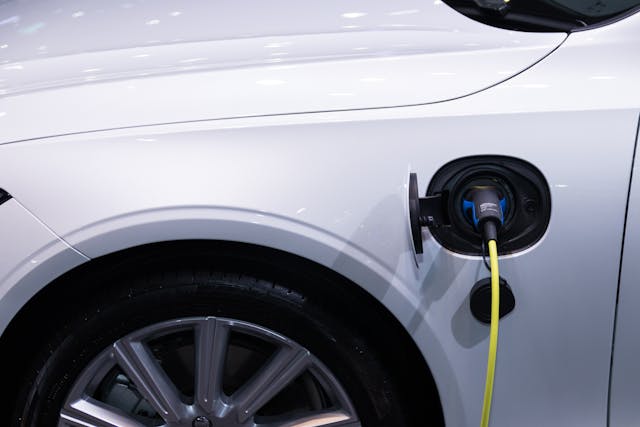Electric vs. Hybrid: Which is Right for You?

As the automotive industry shifts towards more sustainable options, many consumers find themselves at a crossroads: should they go for an all-electric vehicle (EV) or opt for a hybrid? Both options offer environmental benefits over traditional gasoline-powered cars, but they come with different sets of advantages and considerations. Let’s break down the key factors to help you decide which option might be right for you.
Understanding the Basics
Electric Vehicles (EVs): These cars run entirely on electricity stored in batteries. They produce zero direct emissions and are charged by plugging into an electrical source.
Hybrid Vehicles: These combine a gasoline engine with an electric motor. There are two main types:
- Standard Hybrids: The electric motor assists the gasoline engine, improving fuel efficiency.
- Plug-in Hybrids (PHEVs): These can be plugged in to charge and can run on electricity alone for a limited range before switching to gasoline.

Key Factors to Consider
- Driving Range
EVs: Modern EVs offer ranges from 150 to over 400 miles on a single charge, depending on the model. However, once the battery is depleted, you’ll need to stop and recharge.
Hybrids: Standard hybrids don’t need to be plugged in and can travel as far as a regular gasoline car. PHEVs offer a limited all-electric range (typically 20-50 miles) before switching to gasoline, providing the flexibility of longer trips without range anxiety.
Winner: Hybrids, for their flexibility and lack of range limitations.
- Charging and Refueling
EVs: Require access to charging stations, which can take anywhere from 30 minutes (fast charging) to several hours, depending on the charger and battery size.
Hybrids: Standard hybrids refuel like regular cars. PHEVs can be plugged in for short-range electric driving but can also be refueled quickly at gas stations for longer trips.
Winner: Hybrids, for their versatility and quick refueling options.
- Environmental Impact
EVs: Produce zero direct emissions, making them the cleanest option, especially if charged with renewable energy.
Hybrids: Produce fewer emissions than traditional gasoline cars but still rely partly on fossil fuels.
Winner: EVs, for their potential for zero emissions.
- Maintenance
EVs: Generally require less maintenance due to fewer moving parts. No oil changes are needed, and brake wear is reduced due to regenerative braking.
Hybrids: Require maintenance for both the electric and gasoline components, potentially leading to higher long-term costs.
Winner: EVs, for their simpler maintenance needs.
- Initial Cost
EVs: Typically have a higher upfront cost, although prices are decreasing as technology improves and production scales up.
Hybrids: Usually less expensive than comparable EVs but more expensive than traditional gasoline cars.
Winner: Hybrids, for their lower initial cost.
- Fuel Costs
EVs: Electricity is generally cheaper than gasoline, leading to lower fueling costs.
Hybrids: Offer improved fuel efficiency over traditional cars but still require gasoline.
Winner: EVs, for their potentially lower fueling costs.
- Performance
EVs: Offer instant torque, providing quick acceleration. They’re often quieter and smoother to drive.
Hybrids: Provide a balance of performance and efficiency, with some high-end models offering impressive acceleration.
Winner: Tie, depending on personal preference and specific models.
- Infrastructure and Availability
EVs: Charging infrastructure is growing but still limited in some areas. Not all car models are available as EVs.
Hybrids: Can use existing gas station infrastructure. More model options are available across various car types.
Winner: Hybrids, for their wider availability and use of existing infrastructure.
Making Your Decision
Consider Your Driving Habits:
- If you frequently take long trips, a hybrid might be more suitable.
- For primarily short, local trips, an EV could be ideal.
Assess Your Charging Options:
- Do you have access to home charging or public charging stations near your frequent destinations?
- If charging access is limited, a hybrid might be more practical.
Evaluate Your Budget:
- Consider both the initial cost and long-term savings on fuel and maintenance.
- Look into available tax incentives for EVs and hybrids in your area.
Think About Your Environmental Goals:
- If minimizing your carbon footprint is a top priority, an EV might align better with your values.
Consider Future Resale Value:
- Research how EVs and hybrids in your area hold their value over time.
Test Drive Both Options:
- The driving experience differs between EVs and hybrids. A test drive can help you determine which you prefer.
Conclusion
Both electric and hybrid vehicles offer significant advantages over traditional gasoline cars, particularly in terms of environmental impact and fuel efficiency. Your choice between an EV and a hybrid should be based on your specific needs, driving habits, and circumstances.
If you have access to reliable charging and primarily drive shorter distances, an EV could be an excellent choice, offering the lowest emissions and potentially lower operating costs. On the other hand, if you need more flexibility for longer trips or have limited access to charging, a hybrid (especially a plug-in hybrid) might be the perfect compromise, offering improved efficiency without the range limitations of an EV.
Ultimately, both options represent a step towards more sustainable transportation. As technology continues to advance and infrastructure improves, the decision may become easier, but for now, carefully weighing these factors will help you make the best choice for your lifestyle and values.